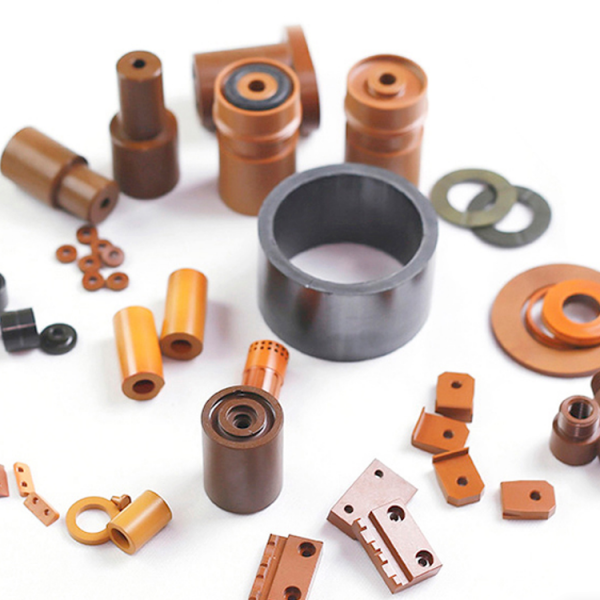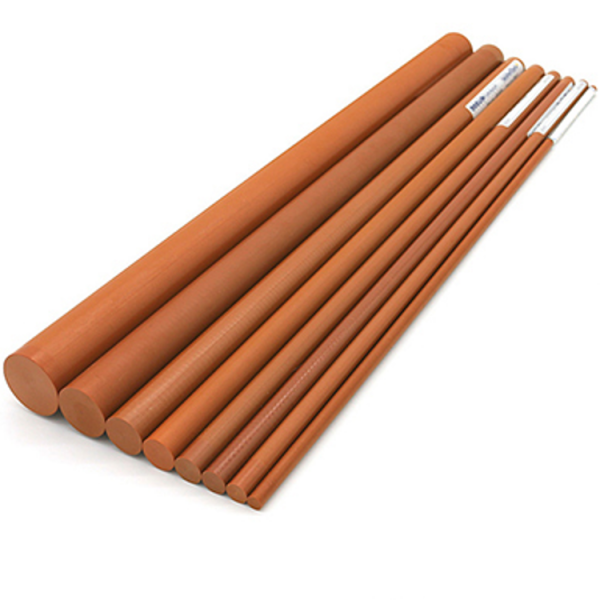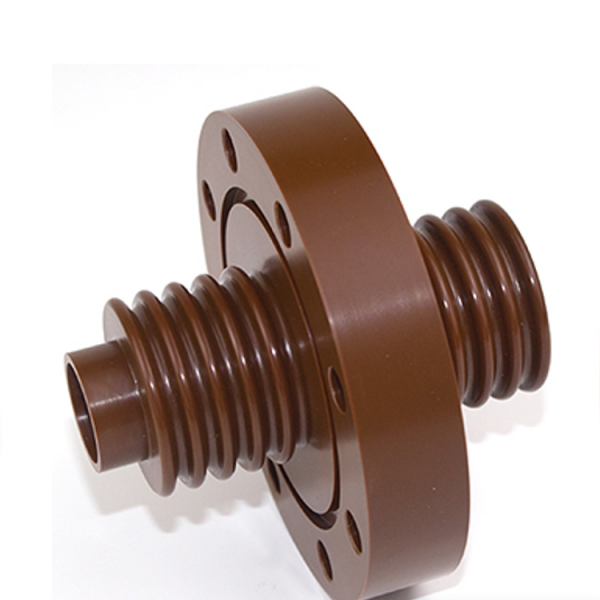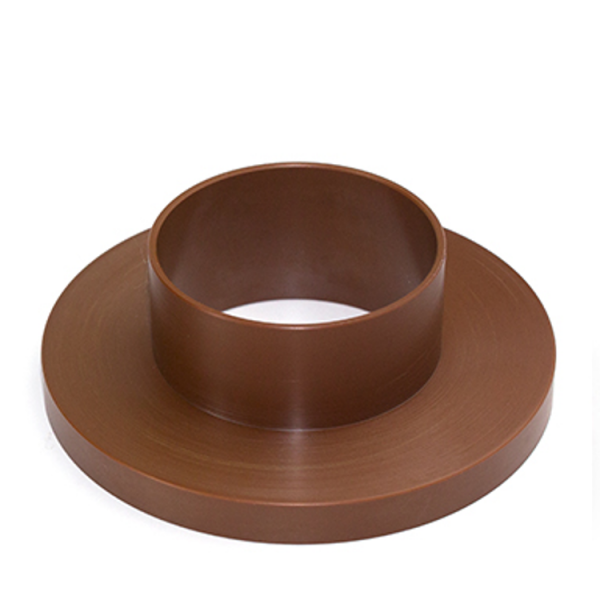PI Specialty Plastics: High-Performance Materials Combining Innovation and Application
Polyimide (PI) is a specialty plastic with unique properties that are important in a wide range of industries due to its excellent high temperature resistance, electrical insulation and mechanical properties. From aerospace to electronics to automotive and medical devices, the applications of PI are wide and varied. In this article, we will take an in-depth look at the properties of PI specialty plastics and how they are used in modern industry.
One of the most compelling properties of PI plastics is their resistance to high temperatures. the ability to withstand temperatures of up to 250 degrees Celsius for long periods of time, and more than 500 degrees Celsius for short periods of time, makes PI ideal for applications that require working in extreme temperature conditions. For example, in the aerospace sector, PI is used in the manufacture of aircraft engine parts, heat shields and structural components.
In addition to its high temperature resistance, PI has excellent electrical insulation properties. Its ability to maintain stable electrical properties over a wide range of temperatures and frequencies has led to a wide range of applications for PI in the electronics industry.PI is commonly used in the manufacture of flexible circuit boards, cable insulation, transformers, and motor insulation, among others.
PI specialty plastics also have excellent mechanical properties, including high tensile strength, rigidity and toughness. These properties allow PI to excel in demanding structural applications such as engine gaskets, seals and bearings in the automotive industry. In addition, PI's wear resistance and low coefficient of friction make it an ideal material for manufacturing sliding and moving parts.
In the medical field, PI's biocompatibility and chemical resistance make it suitable for use in the manufacture of a variety of medical devices, such as catheters, surgical tools, and implants.PI's transparency and optical properties also make it potentially useful in certain specialized medical devices.
Environmentally, PI specialty plastics are also very adaptable to the environment. It is resistant to most organic and inorganic chemicals, including acids, alkalis and solvents. As a result, PI has a wide range of applications in the manufacture of piping, tanks and vessels in the chemical processing and petrochemical industries.
Despite its many advantages, PI specialty plastics have some limitations, such as difficult processing and relatively high cost. However, these challenges are being gradually overcome as technology advances, allowing PI to be used in an ever-expanding range of applications.
In summary, PI specialty plastics are versatile, high-performance materials whose excellence in high-temperature stability, electrical insulation, and mechanical properties have made them popular across multiple industries. Whether in aerospace applications in extreme environments or in precision electronics and medical devices, PI has demonstrated its irreplaceable value. With further research on PI plastics and technological innovations, we can expect PI to play an even greater role in future industrial applications.


Characterization and application of PI specialty materials
Polyimide (Polyimide, abbreviated as PI) refers to a class of polymers containing an imide ring (-CO-NR-CO-) on the main chain, which is one of the organic polymer materials with good comprehensive performance. Many fields of microelectronics technology require electronic devices to work stably and normally in harsh environments, and the performance of PI materials can meet this condition. It can still be used when it exceeds 300℃, which is enough for microelectronics technology that requires high temperature operation. Mainly used in computers, projector motherboards, communication equipment and so on.
Microelectronics technology is the foundation and key of China's electronic information industry. Including aerospace, remote sensing, communications, computer networks and home appliances will be used in microelectronics technology. PI is one of the very commonly used materials in the microelectronics industry, which is listed as one of the 21st century promising engineering plastics, occupies a major position in microelectronics technology. Microelectronics technology is based on integrated circuits and a variety of semiconductor devices based on high-tech electronic technology. It is characterized by small size, light weight, high reliability and fast working speed. And PI materials can meet these properties.
PI
Special Materials have good mechanical properties. Tensile strength of up to 100MPa or more, PI impact strength of up to 261kJ/m, not easy to be damaged by external forces, resistance to elastic deformation when stressed. The ability to resist deformation and fracture can drive the good operation of electronic devices at a later stage. Used in electronic products, mainframe computers and other fields.
Polyimide has good dielectric properties. Good electrical insulation properties, dielectric constant of about 3.4, dielectric strength of 100-300 kV/mm, volume resistance of 10Ω-cm. These properties are maintained at a high level over a wide temperature range and frequency range. For example, electricity is very common in the field of microelectronics. the use of PI materials prevents static electricity and obtains a measure of safety. It is a very good application in the field of electronics.
The application of PI materials is also becoming wider and wider. Its good comprehensive performance, good insulation, good toughness, high temperature resistance, has a broad application prospect in the field of microelectronics.PI materials have a wide range of applications in electronics, aerospace and other fields. At the same time, new energy, semiconductor and other industries on the demand for PI materials will also grow.


PI special plastics in the semiconductor and microelectronics industry applications
PI special plastics in the semiconductor and microelectronics industry in the application of microelectronics technology is the basis and key to China's electronic information industry. Including aerospace, remote sensing, communications, computer networks and household appliances will use microelectronics technology. The focus is that there is a material often appear in the microelectronics industry, that is, PI material, which is listed as one of the very promising engineering plastics in the 21st century, occupies a major position in microelectronics technology, why is that so.
Microelectronics technology is a high-tech electronic technology with integrated circuits as the key and various semiconductor devices as the basis. It is characterized by small size, light weight, high reliability and fast working speed. It is PI material can meet these properties.
PI materials have high temperature resistance. Many microelectronic technology fields require electronic devices in harsh environments, stable, normal work. the performance of PI materials can meet this condition. The fact that they can still be used at temperatures above 300°C is sufficient for microelectronics that require high-temperature operation. Demand for use in computers, projector motherboards, communication equipment, etc..
PI materials have good mechanical properties. The tensile strength can reach more than 100MPa, the impact strength of PI is up to 261kJ/m, it is not easy to be damaged by external forces, and it has the ability to resist elastic deformation when subjected to force. Resistance to deformation, fracture and other aspects of the ability to drive the good operation of electronic devices in the late stage. Used in electronic products, mainframe computers and other fields.
PI material contains polyimide, which has good dielectric properties. Good electrical insulation properties, dielectric constant of about 3.4, dielectric strength of 100-300kV/mm, volume resistance of 10Ω-cm. in a wide temperature range and frequency range, these properties can still be maintained at a high level. For example, electricity is very common in the field of microelectronics. the use of PI materials can prevent static electricity and obtain a safety measure. It is a very good application in the field of electronics.
The application fields of PI materials are also expanding. With its excellent performance, good insulation, toughness, high temperature resistance and other characteristics, it can promote the manufacture of microelectronics technology-related devices. The electronics industry and aerospace field are the application areas where PI materials are used in very large quantities. Meanwhile, the demand for PI materials in new energy, semiconductor chips and other industries will continue to grow.







